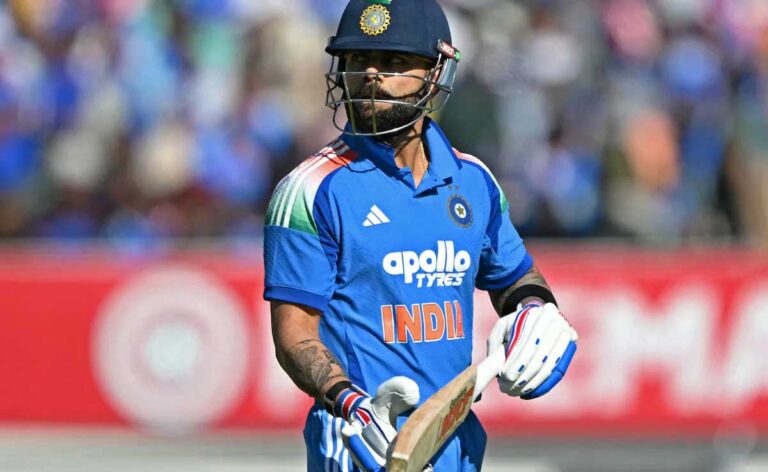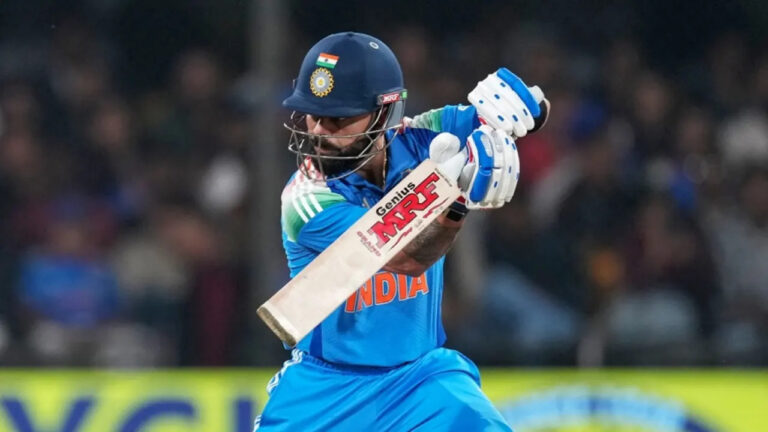
Image Credit: business-standard.com/
The Indian Premier League (IPL) is a very competitive cricket tournament. Ten teams present put their heart and soul to outplay their opponents. Therefore, the points table becomes one of the most crucial aspects. Consequently, top four teams get into the knock out matches to claim the title. But, every season the qualification standards become an interesting part of the tournament. Besides playing good cricket, the question remains constant- “how many points are needed to qualify for the IPL playoffs.” At the same time, it brings another level of thrill and competitiveness in the tournament that fans love.
Let us discuss all aspects related to the qualification for knockout games in the IPL. Here we will understand how the points table works and what are the parameters for teams to qualify.
IPL Playoffs Qualification: How It Works
The qualification process remains almost similar to any other cricket league, the best teams stay at the top. The tournament has 70 league matches and 4 playoff matches in total. Each team plays 7 home games and 7 away matches in the league phase. Depending on their performances, their positions are established on the points table:
- Each Team Plays 14 Matches: Each team faces each other twice in the league phase. It gives them 14 league matches in total.
- Points System: 2 points for a win, 1 for a no-result or tie, and 0 for a loss.
- Top 4 Advance: The top four teams on the points table qualify for the playoffs.
- Net Run Rate (NRR): Acts as the tiebreaker if teams are level on points.
This structure means every run and every over can have playoff implications.
What’s the Magic Number? Minimum Points Needed to Qualify
Historically, point thresholds have varied slightly by season, but here’s a general guide based on past trends:
16 Points (8 Wins) – The Safe Zone
Teams that reach 16 points almost always secure a playoff spot. This has been the gold standard for consistency across IPL seasons and significantly reduces the need to rely on NRR or other teams’ outcomes.
14 Points (7 Wins) – The Risk Zone
Teams finishing with 14 points often enter a tightly contested race for qualification. A strong net run rate can tilt the balance. For example, Kolkata Knight Riders qualified in 2021 with 14 points, thanks to superior NRR over other contenders.
12 Points (6 Wins) – The Rare Exception
Qualification with 12 points is extremely rare and only occurs during exceptionally competitive seasons. Even in these cases, a high NRR and favorable results from other matches are essential.
Related Read: Top Players Who Played at Number 3 in Test Cricket History
Why Match Wins Matter: The Bigger Picture
Early Momentum
Teams that win 3–4 of their opening matches often build rhythm and confidence, creating breathing room for strategic flexibility in the latter half of the season.
Home Advantage
Franchises like CSK and MI have historically capitalized on home turf conditions—pitch familiarity, crowd support, and venue-specific strategies can yield crucial wins.
Consistent Across Phases
Rather than relying on hot streaks, successful teams win consistently across all stages of the league. Avoiding back-to-back losses is key to staying in contention.
Winning the Close Games
Last-over thrillers often separate playoff-bound teams from the rest. Effective death overs strategy—both in batting and bowling—can swing critical matches.
The Net Run Rate Factor: A Playoff Deal-Breaker
NRR can be a silent eliminator—or savior.
How It’s Calculated:
NRR = (Total Runs Scored / Overs Faced) – (Total Runs Conceded / Overs Bowled)
It rewards teams that win big and lose small, encouraging aggressive yet measured cricket. A couple of heavy defeats can dent even a decent season.
Examples:
- KKR (2021): Qualified with 14 points due to better NRR than Mumbai Indians.
- Rajasthan Royals (2010): Missed out despite equal points, due to inferior NRR.
Historic IPL Playoff Qualifications: At a Glance
| Years | Points Needed | Wins Required | Example Teams |
| 2023 | 16 | 8 | Chennai Super Kings |
| 2022 | 14–16 | 7–8 | Gujarat Titans, RCB |
| 2021 | 14 | 7 | Kolkata Knight Riders (on NRR) |
| 2020 | 14–16 | 7–8 | SRH, Delhi Capitals |
| 2019 | 16 | 8 | Mumbai Indians |
Case Studies: Teams on Both Ends
Teams Qualifying with Fewer Wins
- KKR (2021): Qualified with 7 wins due to excellent NRR.
- SRH (2016): Entered with 14 points and went on to win the title.
Teams Dominating the League
- Gujarat Titans (2022): Finished with 10 wins and topped the table.
- Mumbai Indians (2019): Qualified with 18 points and went all the way.
Strategies to Boost Playoff Qualification Chances
Here’s how teams increase their odds of making the final four:
- Target Home Games: Maximise familiarity and conditions to lock in early points.
- Maintain a Strong NRR: Win big when possible, and avoid heavy defeats.
- Win High-Impact Matches: Focus on beating direct playoff competitors.
- Squad Rotation: Keep players fresh and avoid burnout.
- Death Overs Efficiency: Nail the crucial final overs with well-planned tactics.
Also Read: Virat Kohli Diet Plan: A Complete Nutrition Guide
Conclusion
Technically, 16 points secures a place in the qualification for teams. However, it is not the ultimate metric. Along with points, net run rate and strategic consistency remain game-changers in seasons where teams are neck-and-neck. There are chances that two teams have the same score on the points table. In such a scenario, net run rate and other such factors contribute to the qualification of a team.
As each season unfolds, playoff qualification becomes a test of not just performance, but planning, adaptability, and execution under pressure. For teams dreaming of lifting the trophy, every match really is a final.
Frequently Asked Questions (FAQs)
Teams typically require 16 points to secure a playoff spot comfortably.
Yes, teams with 14 points (7 wins) often qualify, depending on their net run rate and other results.
NRR acts as a tiebreaker when teams have equal points, determining which team advances to the playoffs.





